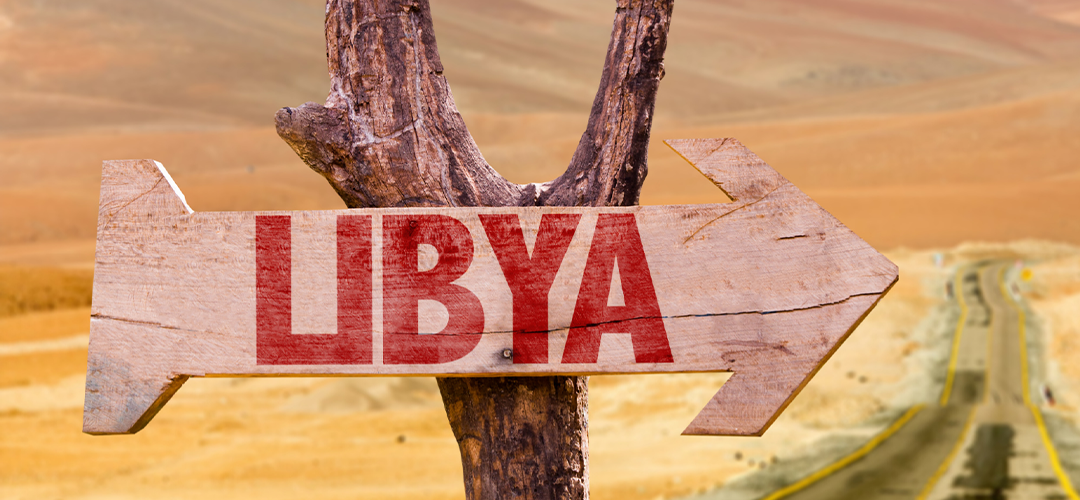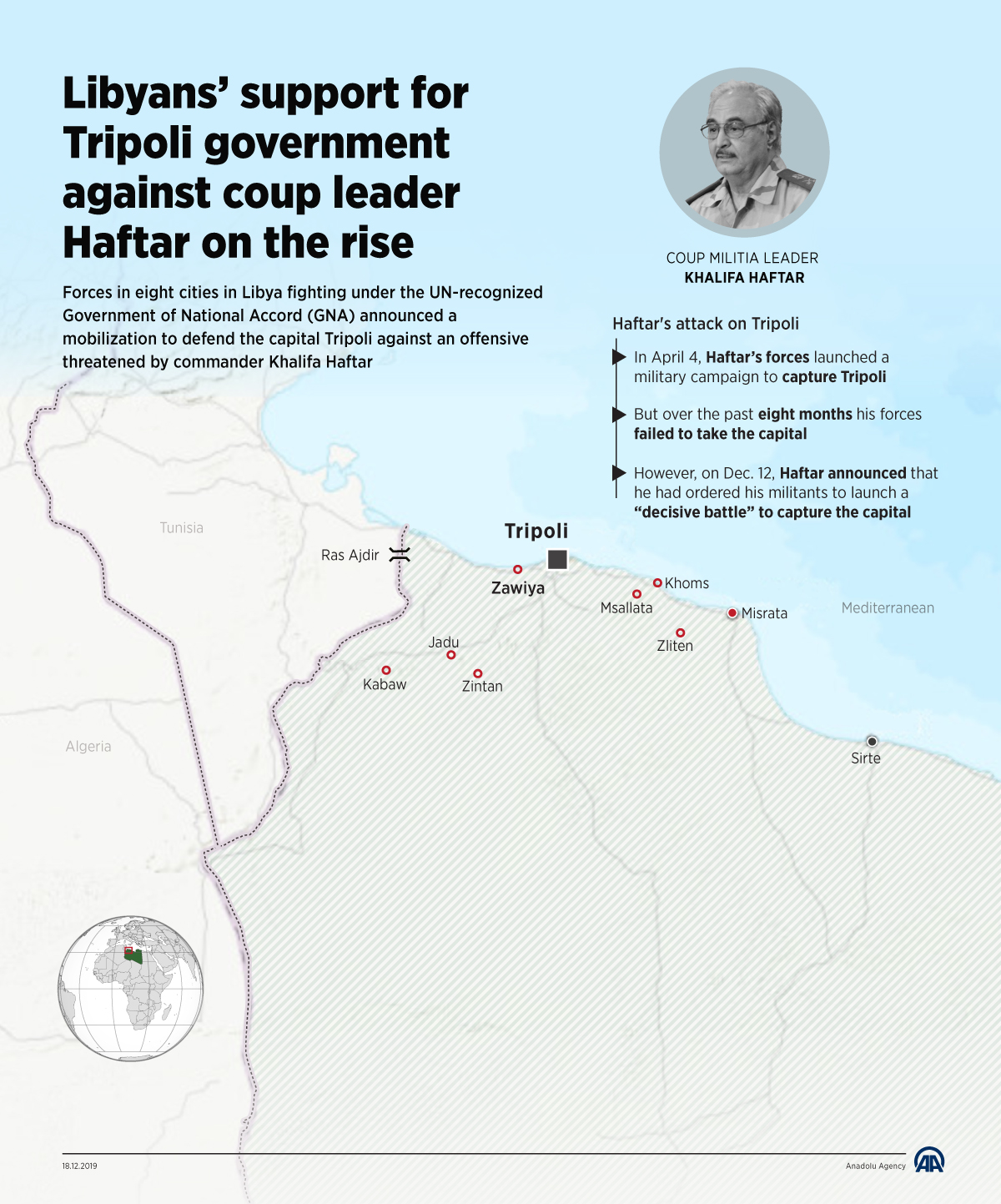LIBYA: A FORSAKEN LAND?
September 3, 2022 | Expert Insights

The battered Libyan capital, Tripoli, is ablaze again with warring factions exchanging automatic and mortar fire in its residential suburbs. As international pressure pushes both parties towards a political solution, hopefully, a lasting one, the battle lines have been drawn for the control of Tripoli, the seat of power.
The power equation is equally split between those that back the United Nations-recognised government in Tripoli and those that support a rival parliament established in the eastern city of Tobruk, the stronghold of warlord 'Field Marshal' Khalifa Haftar. Denied the capture of Tripoli by his militias in 2019 by Turkish military intervention, Khalifa Haftar is now a candidate for the Presidential elections scheduled later this year.
Background
Oil-rich Libya has been in complete chaos since the Arab spring uprising. Seeing an opportunity, NATO stepped in, throwing its decisive air power behind the disparate group of rebels, who finally captured and executed a dishevelled and pathetic Gaddafi in a roadside ambush in 2011.
But that was not an end to the troubles of this blighted nation because in the vacuum left after Gaddafi's demise, a bunch of warlords tried to gain control leading to a civil war, which continues to date. Located close to the shores of Europe, Libya quickly became a jumping point for thousands of illegal migrants seeking a better life in the West.
Radical elements like the Islamic State and Muslim Brotherhood, too, have entered the fray, making the problem even more intractable. Libya's oil and proximity to the oil/gas-rich waters of the eastern Mediterranean make it appealing to external powers, most notably Turkey, Qatar, the UAE, and Russia, who have become involved in this conflict, making it another 'Syria.'
Under intense UN pressure, a Government of National Unity (GNU) was formed last year in March to bring together the erstwhile UN-supported Government of National Accord (GNA) based in Tripoli and the Second Al-Thani Cabinet based in Tobruk. The GNU prime minister is Abdul Hamid Dbeibeh, who was to oversee national elections last December. But there was a dispute over the voting rules, and the entire process collapsed.
In the interim, the parliament of the Tobruk-based government declared its own prime minister Fathi Bashagah, rejecting Dbeibeh. Even other western Libyan factions, who were earlier fighting against Haftar, joined Bashagah. As the alliances and coalitions around Dbeibeh and Bashagha shifted, tensions rose, culminating in the outbreak of pitched street battles in Tripoli, where scores are reportedly dead. Dbeibeh, it is being reported, has consolidated his hold on Tripoli.

Analysis
The convoluted patchwork of international actors involved in Libya's conflict reflects the complexity of its political dynamics.
The list of countries meddling in the Libyan civil war is prolonged. Through its Wagner Group (a private military contractor), Russia has contributed to the ebb and flow of the fighting and strengthened the eastern faction under Tobruk. Turkey's armed drones and arms supply to the UN-approved Tripoli government prevented the collapse of the GNU.
As the balance of power in Libya changes, nations that sense a chance to further their own interests have aligned and realigned. Algeria has traditionally been a minor player in the Libyan conflict, but this may change as the country seeks to strengthen ties with several key players. Moreover, Italy and Algeria have agreed to expand natural gas exports to Europe.
The role of the UN has also not been entirely blameless. Formed in 2011, the UN Support Mission in Libya (UNSMIL) is a political mission with no military role or capacity. Its mandate lies in providing mediation "in implementing Libyan political agreements, supporting key Libyan institutions and monitoring and reporting on human rights." As events on the ground prove, the UNSMIL has barely scratched the surface of its ambitious mandate.
The security situation and the lack of substantive progress on security sector reform (SSR) in Libya are deteriorating against this political impasse. Armed groups' competition for territorial control continues to jeopardize the cease-fire, particularly in Tripoli and towns in the northwest. The presence of foreign mercenaries is still destabilizing the country of Libya. They benefit from breaches in the arms embargo, allegedly acting on behalf of Russia, Turkey, and several Arab and neighbouring states. This is despite the UN special adviser and the efforts of a 5+5 Joint Military Commission to remove mercenaries, foreign fighters, and foreign forces from Libyan territory.
The efforts of the Libyan government to reduce poverty and economic inequality and provide social welfare have been hampered by competition for control of oil resources (the most lucrative source of public revenue in Libya) and the ongoing cycle of elite-driven political violence. Russia's invasion of Ukraine has only aggravated the situation.
Assessment
- The world is prepared to accept any group that can claim Tripoli as the nation's legitimate administration after a decade-long standoff in the Libyan civil war. As a result, several groups, including Dbeibah, Bashagha, and Saleh, are still fighting to control the capital.
- While it is agreed that the UN remains an essential partner for Libya, UNSMIL and the Security Council must articulate clearly and communicate a strategy that takes advantage of the UN's strengths and limitations. As the crucial proposed elections draw closer, the UNSMIL must enhance its capacity to engage beyond political matters into economic issues and mainstream human rights. There is potential for new violence in Libya as the country faces delays in moving toward elections.
- While Libya bears the primary responsibility for establishing lasting peace, the international world must set aside narrow self-interests to assist and concentrate on the actual needs and ambitions of the Libyan people.








Comments